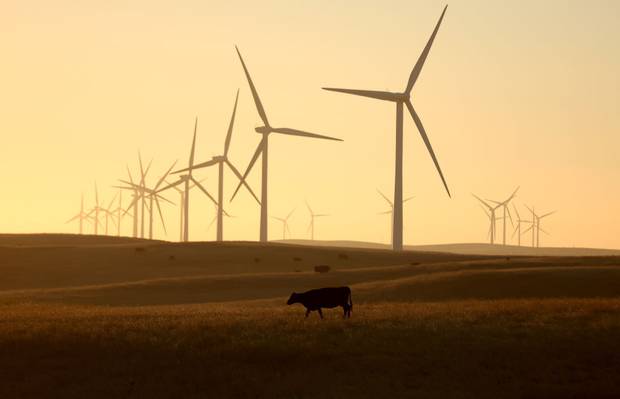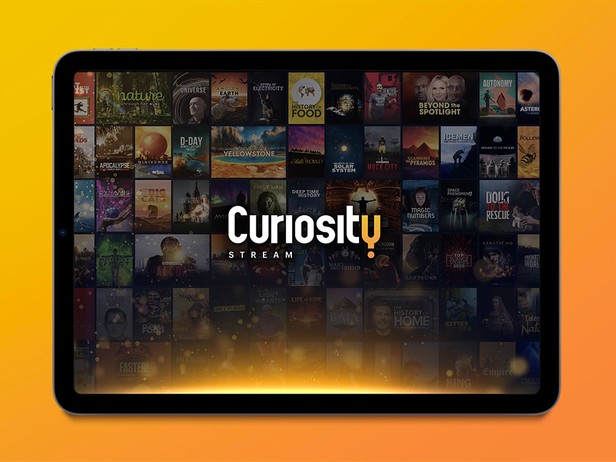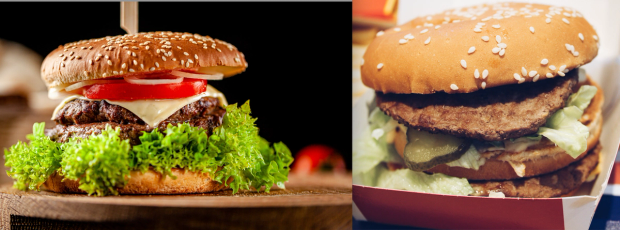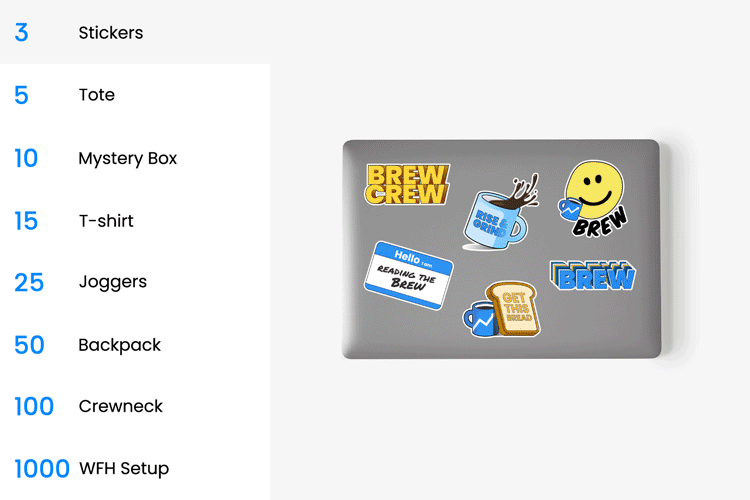|
|
|
|
|
|

Justin Sullivan/Getty Images
|
|
|
Careers
TREASURE HUNTERS, MUST BE DETAIL-ORIENTED: Remember when West Point staff opened a nearly 200-year-old time capsule in front of a packed auditorium and found nothing? Well, they looked a little bit harder and discovered six silver American coins dated 1795–1828 and a commemorative medal. “It would have been great to have found these on stage,” West Point archaeologist Paul Hudson told the AP.
GONZO JOURNALIST: A TV crew in Chicago was robbed while reporting on robberies in Chicago. The thieves even stole the camera, so the story was never broadcast.
For sale
FORMER 7TH HOLE: Hong Kong’s government said it will reclaim a large portion of an exclusive golf course (entrance fee: $51,000) and use the land for public housing. The club’s members are not happy—the Old Course was built in 1911 and is the oldest 18-hole course in Greater China.
KID-FREE AIRPLANE SEATS: Corendon Dutch Airlines is selling tickets for adults-only zones on flights between Amsterdam and Curaçao. The 102 seats in the front of the plane will be separated from the back by curtains and walls, but still…everyone knows the kids’ table is always more fun.
Personal
NSFW PAYOUT: The owner of OnlyFans, Leonid Radvinsky, earned more than $338 million in dividends last year, equivalent to $1.3 million for each working day, according to financial statements obtained by People. The platform says it keeps 20% of payments to its creators.
WILL PAY TO SKIP LINE: The drought-stricken Panama Canal is backed up, but one ship was in such a hurry that it paid $2.4 million to skip the line, per Bloomberg. Hope it’s carrying our Amazon order.—NF
|
|
|
|
|
Your home is your happy place. Your safe haven. And to keep it that way, you need home security that’s fast and reliable…aaand that doesn’t drain your bank account in the process.
Luckily, SimpliSafe ticks all of those boxes, especially now that you can save 40% off your system and claim a free Smart Alarm security camera when you enroll in Fast Protect™ monitoring.
SimpliSafe’s award-winning home security system covers the whole home and is powered by 24/7 professional monitoring for less than $1/day. Their brand-new Live Guard Protection even allows agents to see and speak to intruders to help stop them in real time.
Snag this deal—and peace of mind—pronto.
|
|
|
|
Maxar Technologies
This is what Burning Man, the pricey art festival promoting “radical self-expression” and “radical self-reliance,” looks like from space. Each year, Black Rock City rises in the middle of the Nevada desert to resemble an ancient Greek amphitheater.
|
|
|
Dexter’s Laboratory/Warner Bros. Domestic Television via Giphy
Here are some illuminating scientific discoveries from the week to help you live better and maybe even go two for two from the foul line.
 Beer goggles debunked. It turns out that having a few drinks doesn’t make us view people as prettier, but it does give us the liquid courage to say hi to a crush. Researchers brought 18 pairs of male friends into the lab to mimic a boys’ night out, gave them some alcoholic beverages, and had them rate the hotness of people in pictures and videos. Despite what movie tropes suggest, being intoxicated did not affect how attractive the men thought people were—but it did boost their confidence. After drinking, participants were 1.71 times more likely to pick one of their top four hot people for a potential future meetup than when asked to select a date while sober. Beer goggles debunked. It turns out that having a few drinks doesn’t make us view people as prettier, but it does give us the liquid courage to say hi to a crush. Researchers brought 18 pairs of male friends into the lab to mimic a boys’ night out, gave them some alcoholic beverages, and had them rate the hotness of people in pictures and videos. Despite what movie tropes suggest, being intoxicated did not affect how attractive the men thought people were—but it did boost their confidence. After drinking, participants were 1.71 times more likely to pick one of their top four hot people for a potential future meetup than when asked to select a date while sober.
 The science of a perfect free throw. Listen up, driveway ballers: Scientists have some data-backed tips for your form. Researchers at the University of Kansas assessed the free-throw skills of 34 men with rec league- to collegiate-level basketball experience and found that the ones who made buckets 70% of the time had a controlled shooting motion with a lower center of mass, less forward lean, and higher ball release, compared to less proficient players. It’s the first time the qualities of a good free throw have been studied using markerless motion capture technology, which tracks movements without the subject needing to wear a bunch of sensors, per the researchers. The science of a perfect free throw. Listen up, driveway ballers: Scientists have some data-backed tips for your form. Researchers at the University of Kansas assessed the free-throw skills of 34 men with rec league- to collegiate-level basketball experience and found that the ones who made buckets 70% of the time had a controlled shooting motion with a lower center of mass, less forward lean, and higher ball release, compared to less proficient players. It’s the first time the qualities of a good free throw have been studied using markerless motion capture technology, which tracks movements without the subject needing to wear a bunch of sensors, per the researchers.
 Posting about mental health may affect hiring odds. We’ve made some strides in destigmatizing mental health, but a new study shows there are still potential negative consequences for job seekers who vocalize their personal challenges online. Researchers tasked 409 professionals with evaluating job candidates based mostly on their LinkedIn pages, some of which mentioned experiences with anxiety and depression, and some of which did not. The results: “Participants who saw the LinkedIn post about mental health challenges viewed the job candidate as being less emotionally stable and less conscientious,” one researcher said. The research team encourages companies to avoid this bias by setting guidelines for factoring LinkedIn profiles into hiring.—ML Posting about mental health may affect hiring odds. We’ve made some strides in destigmatizing mental health, but a new study shows there are still potential negative consequences for job seekers who vocalize their personal challenges online. Researchers tasked 409 professionals with evaluating job candidates based mostly on their LinkedIn pages, some of which mentioned experiences with anxiety and depression, and some of which did not. The results: “Participants who saw the LinkedIn post about mental health challenges viewed the job candidate as being less emotionally stable and less conscientious,” one researcher said. The research team encourages companies to avoid this bias by setting guidelines for factoring LinkedIn profiles into hiring.—ML
|
|
|
|
|
|
Feed your growth mindset. Picture a library of fascinating documentaries and shows. The subjects span from science to music and everything in between. Well, now you can access that library with Curiosity Stream. New content arrives every week and annual plans start at under $4/month. Try it out.
|
|
|
|
Zumar Kalimov/Babic Goran/Getty Images
The Whopper didn’t get its name for being small. But some disgruntled Burger King customers say menu photos of the chain’s flagship burger exaggerate its size, and they’re hungry for litigation.
This week, a Miami judge refused Burger King’s request to toss a class-action lawsuit alleging that in-store depictions of the Whopper brimming with fillings make the burger appear 35% larger than IRL.
Whoppergate is only the latest in a string of false advertising suits hurled at fast-food giants:
- BK rivals McDonald’s, Wendy’s, and Taco Bell have also been taken to court over their portion sizes.
- And, in a sign that customers are broadly getting fed up with the expectations → reality gap in food advertising, 214 class-action suits were filed against food companies in 2022, compared to just 45 filed in 2010, per the law firm Perkins Coie.
The litigious trend raises questions about whether food companies have been misleading the public or if consumers (and their lawyers) are interpreting food ads too literally.
Are consumers picking on food brands?
The legal standard for proving an ad is deceitful is that a “reasonable consumer” could be misled by it. But the law allows for hyperbolic marketing, known as puffery, that hypes a product like your typical Hinge profile (think “the best meat cake in the world”). The difficulty of knowing where to draw the line creates a space for lawsuits.
In one now-canonical instance of taking food branding at face value, Subway was sued in 2013 after a customer realized their footlong measured less than 12 inches in length. But it’s not all about size. Many recent claims concern the purported flavor of menu items and ingredients:
-
Wegman’s was sued in 2019 for calling ice cream vanilla-flavored despite it containing no actual vanilla. The issue of artificial vanilla in vanilla-flavored products has been the subject of hundreds of lawsuits since 2019, per the Associated Press.
-
And Kellogg had to lawyer up for a case alleging its Strawberry Pop-Tarts filling consisted of more non-strawberry ingredients than the name would suggest.
But judges can rule that plaintiffs are not being entirely reasonable: The Wegmans and Kellogg cases were dismissed.
Still, even a possibly spurious legal challenge can cause headaches, and sometimes food companies find it easier to pay the plaintiffs. Frito-Lay presumably settled a suit claiming that its Tostitos chips were deceitfully advertised as having a “hint of lime” when the lime flavoring was artificial. And though Subway argued that no one should expect the footlong to be exactly…one foot long every time, the company agreed to pay $525,000 (but an appeals court ultimately threw out the deal, saying it served only to pad the pockets of the plaintiffs’ lawyers).
Where’s the appetite for legal action coming from?
Some experts attribute the recent flurry of cases to increased health consciousness and the ubiquity of online ads making consumers more cognizant of marketing tricks. Plus, social media helps eaters who feel they’ve been deceived about their food band together.
But attorney Pooja Nair, who defends food companies against misleading ad claims, says the litigation wave isn’t coming from disgruntled diners. She told Morning Brew that a 2008 precedent that made it easier to advance false ad claims is behind the uptick in these cases. Nair says attorneys are the only true winners from settlements.
And attorneys are certainly scrutinizing the ads. Instigating much of the legal action is Long Island lawyer Spencer Sheehan, dubbed the “Vanilla Vigilante” by the New York Post. Sheehan has spearheaded many artificial vanilla suits, as well as other food flavoring cases, including the Pop-Tarts strawberry filling and Tostitos “hint-of-lime” suits.
Though many of Sheehan’s cases have failed, others may have been quite lucrative. The New York Post says Sheehan’s firm stood to earn hundreds of thousands from a settlement with Blue Diamond over its vanilla-flavored milk and yogurt products, while customers were handed at most $1 per unit bought.
Sheehan told the Guardian that food ad litigation could be avoided entirely “if all the companies were diligent about complying with the limits set by regulations.” When speaking with Morning Brew, he mentioned that “plaintiffs’ attorneys are like a substitute teacher” filling in for government regulators, which he says have taken a back seat role in enforcing the rules.—SK
|
|
|
Nicolas Economou/NurPhoto via Getty Images
It’s a big world out there. In this section, we’ll teleport you to an interesting location—and hopefully give you travel ideas in the process.
Ikaria, Greece. Okinawa, Japan. The Nicoya peninusla of Costa Rica. The Ogliastra region of Sardina. Loma Linda, California.
What could these far-flung places possibly have in common?
They are known as Earth’s “Blue Zones,” areas where an abnormal amount of people live to 100. In a new Netflix documentary, author and researcher Dan Buettner takes you to these places and explores why the Grim Reaper visits so infrequently.
While each Blue Zone is distinct, they share commonalities that anyone hoping to live a long, healthy life can learn from: smart eating habits, infusing your day with low-intensity exercise (Zone 2 ftw), strong community ties, and literally having a reason to live.
Let’s take diet, for example. Buettner explains that of the 220 food decisions a person makes in a day, only 10% are conscious. So, if your local environment is overflowing with veggie options…you’ll probably eat a lot of veggies. That’s the case in the Blue Zone of Loma Linda, CA, where the local grocery store doesn’t sell red meat, seafood, or poultry. The reason is that Loma Linda has one of the highest concentrations of Seventh-Day Adventists in the US, a Christian denomination that encourages vegetarianism and a healthy lifestyle.
One final takeaway from Blue Zone residents that seems particularly relevant on this three-day weekend: They deprioritize work and prioritize hanging out with others. “People would never do a couple of extra hours of work when they could be enjoying their family, or taking a siesta, or interacting with their friends,” Buettner told Insider.—NF
|
|
|
 Meal prep: Add this easy Thai-inspired coconut curry to your dinner rotation. Meal prep: Add this easy Thai-inspired coconut curry to your dinner rotation.
 Prep-less meal: Momofuku spiffed up ramen with these four-minute prepackaged noodles. Prep-less meal: Momofuku spiffed up ramen with these four-minute prepackaged noodles.
 Book rec: Tree of Smoke by Denis Johnson is a suspenseful, ambitious novel set during the Vietnam War. Book rec: Tree of Smoke by Denis Johnson is a suspenseful, ambitious novel set during the Vietnam War.
 Art rec: Does topography tickle your fancy? Then these detailed map posters are for you. Art rec: Does topography tickle your fancy? Then these detailed map posters are for you.
 Watch: Telemarketers is a new docuseries on Max about the rise of an industry built on a scam and the eccentric whistleblower who tried to take it down. Watch: Telemarketers is a new docuseries on Max about the rise of an industry built on a scam and the eccentric whistleblower who tried to take it down.
 Listen: Whether or not you made it to Paris this summer, indulge in a jazzy Parisian playlist. Listen: Whether or not you made it to Paris this summer, indulge in a jazzy Parisian playlist.
|
|
|
Last week, we asked: What is your fantasy football league’s creative punishment for finishing in last place?
Here are our favorite (and the cruelest) responses:
-
“Loser has to go skydiving at the lowest-rated skydiving establishment in Texas.”—Michael from Waco, TX
-
“The Cancún challenge. Last place has to stay at the local Mexican restaurant from open to close (10am–10pm). Every jumbo margarita they drink counts as an hour off their time.”—Logan from Warrensburg, MO
-
“The last-place finisher is awarded a front license plate that in no uncertain terms makes it clear they came in last place. The license plate is affixed to the individual’s car at this year’s draft. They must keep it on their car until the following year’s draft!”—John
-
“Last year, I had to dig a hole 5 feet by 5 feet. Just like in the movie Holes.”—Barry from Pittsburgh
-
“My friend and I met these guys in Central Park who made the loser dress up as Popeye and give boat rides to strangers around the Boathouse for two hours with balloons that said ‘LOSER’ tied to the backs.”—Julia from NYC
-
“Last year, in a couples league, the winner got to name the loser’s first-born child.”—Grace from Fort Wayne, Indiana (Editor’s note: WHAT?!?!)
This week’s question
Which person’s biopic would you be most excited to see? And which actor would play them?
Abby’s answer to get the juices flowing: “Elon Musk played by Christian Bale, with Lady Gaga as Linda Yaccarino.”
Share your response here.
|
|
|
|
|

|
Written by Neal Freyman, Abigail Rubenstein, Sam Klebanov, Cassandra Cassidy, and Molly Liebergall
Was this email forwarded to you? Sign up
here
Take The Brew to work
Get smarter in just 5 minutes
Business education without the BS
Interested in podcasts?
|
ADVERTISE
//
CAREERS
//
SHOP 10% OFF
//
FAQ
Update your email preferences or unsubscribe
here.
Please Note: We've recently updated our Privacy Policy. View our privacy policy
here.
Copyright © 2023 Morning Brew. All rights reserved.
22 W 19th St, 4th Floor, New York, NY 10011
|
|
|













